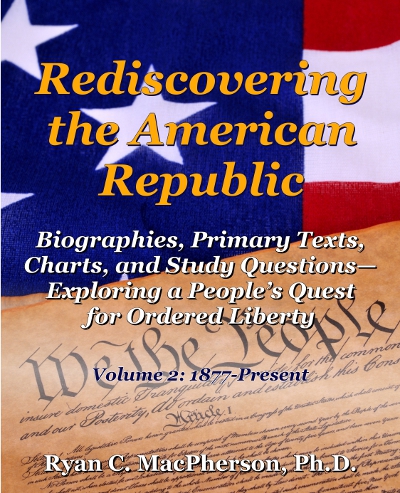Last night, I spent 2 hours reading this book from cover to cover.
It’s a little gem for the homeschooling parent and reminded me of some important truths. Below is a summary, using mostly quotations from the book.
Teaching from Rest (Schole) is…
… preparing for life, not finishing curriculum.
“In Latin, curriculum means ‘a running’ or ‘a racecourse.’ Figuratively it means one’s career—one’s life course” (ix).
“Rest is not the opposite of work, but rather work of a different order” (61).
“Rest is the virtue between negligence and anxiety…. [W]e aren’t meeting [our children’s] needs or tending to their real nature when we swing like a pendulum to either the vice of anxiety or the vice of negligence” (7).
… not dependent on circumstances.
“[Schole doesn’t mean] teach your calm children in a calm manner on a calm afternoon… [It means] that we ought to enter into God’s rest and then serve Him wholeheartedly—not out of anxiety, but out of love and trust” (xii).
… considering your own insufficiency.
“[M]ore than anything else, I desire to teach and mother in a way that pleases God. Some days that feels like feeding the five thousand. But He is not asking me to feed the five thousand; He just wants me to bring my basket of loaves and fish and lay them at His feet” (xiii-xiv).
“Bring your loaves and your fish, even if you think them completely insufficient. They are insufficient. You are insufficient. But His grace is not” (15).
“Our souls are restless, anxiously wondering if something else out there might be just a little bit better—if maybe there is another way or another curriculum that might prove to be superior to what we are doing now… We’ve got to drop the self-inflated view that we are the be-all and end-all of whether the education we are offering our children is going to be as successful as we hope it is” (xvi-xvii).
… putting people before things.
“What is keeping you from speeding through the reading curriculum, flying through the math books, checking off the lesson plans and maximizing efficiency? Usually the answer is: people” (2).
“Surrender your idea of what the ideal homeschool day is supposed to look like and take on, with both hands, the day that it is” (3).
“[Experienced homeschooling moms] don’t tell me to worry over what the neighbors or my mother-in-law or anyone else thinks. They don’t give me lists of their best curriculum choices and tell me to replicate them. They tell me to focus on relationships, to help my children preserve wonder and perceive truth, and to do each day’s work as diligently as I can” (35).
“It’s true that becoming a habitual multitasker will mean that you check a lot more off your list at the end of the day. It also invariably means that you will have missed the critical point of truly educating your child. She is not a project to be managed but a soul to be cultivated” (49).
“By definition, to be efficient is to achieve maximum productivity with minimum wasted effort or expense. But relationships don’t flourish or grow that way. Relationships need time, spent lavishly. Homeschooling is all about relationships, and relationships just aren’t efficient” (50).
… faithfully executing your vocation.
“Faithfulness is showing up every day to do the work He has called us to. Whether or not things turn out in the end as I’m hoping they will… is not actually within my span of control. It’s not my assigned task. He isn’t asking me to succeed on the world’s terms. He’s asking me to faithfully do the work” (9).
… acknowledging God’s sovereignty.
“You do not have to have a ‘productive’ homeschool day to please the Savior.… You are cultivating your child like a tree, and trees will bear fruit in time. We are taking the long view.… Faithfully tending to your work each day is what success looks like for the homeschooling mother” (70).
“We make a grave mistake when we think that the success of our homeschool hinges on whether or not we can pull together the ideal curriculum or read the best books … God doesn’t need you. But He wants to work through you” (80).
“Take a deep breath, mama. This isn’t as dependent on you as you think it is. Give God your ‘Here I am. Use me.’ Let Him carry the burden” (81).
Commentary:
1. Schole is instructive for any style of homeschool.
Initially, I avoided reading this book because I had the mistaken impression that teaching from rest would involve throwing away my plans and schedules. But I like plans and schedules! However, schole assumes a schedule, though a simple one, and it reminds mothers to build in margin to that schedule for the unexpected. Whether you choose a rigorous classical curriculum or prefer the laid-back style of unschooling, Teaching from Rest reminds all educators that we are teaching people, not just subjects, and that God can and will work regardless of our shortcoming.
2. Faithfulness is God’s, not ours.
Faithfulness to the task before us is emphasized again and again in Teaching from Rest. Part of that faithfulness is based on the good works which we do daily in our homes. “Smile a lot. Lavish him with love” (10). To hear these so-called “simple” things we are to do as mothers, and yet, realize how we utterly fail is condemning. Satan can even use a simple term like “faithfulness” to burden us with the law, or conversely, tempt us to trust in our own works. As a Christian, however, I remember that God is the Faithful One, forgiving me all of my sins and daily keeping me in the promises of my baptism. He even feeds me with His body and blood for the strengthening of my faith.
3. Is there a book with a similar topic but a different perspective?
I’d love to read a book on the same topic, but from the specific perspective of a former teacher finding schole in the home. It’s hard enough to find rest for any homeschooling mother, but I imagine there are unique challenges to teaching from rest as a homeschooling mother after coming out of the academics expected as a school teacher: The rule of the classroom does not need to rule her home. I think this perspective could be invaluable for taking schole to the next level.
Teaching from Rest reminded me that homeschooling my children is not a checklist, but a labor of love for the Lord—the same Lord who promises to carry me through each and every struggle. “And whatever you do, do it heartily, as to the Lord and not to men” (Colossians 3:23).
Read a book review on another wonderful homeschooling perspective: Eternal Treasures.
Mrs. Marie K. MacPherson, vice president of Into Your Hands LLC, lives in Casper, Wyoming, with her husband Ryan and their children, whom she homeschools. She is a certified Classical Lutheran Educator (Consortium for Classical Lutheran Educators), author of Meditations on the Vocation of Motherhood (Old Testament vol., 2018; New Testament vol., 2023), and editor of Mothering Many: Sanity-Saving Strategies from Moms of Four or More (2016).



